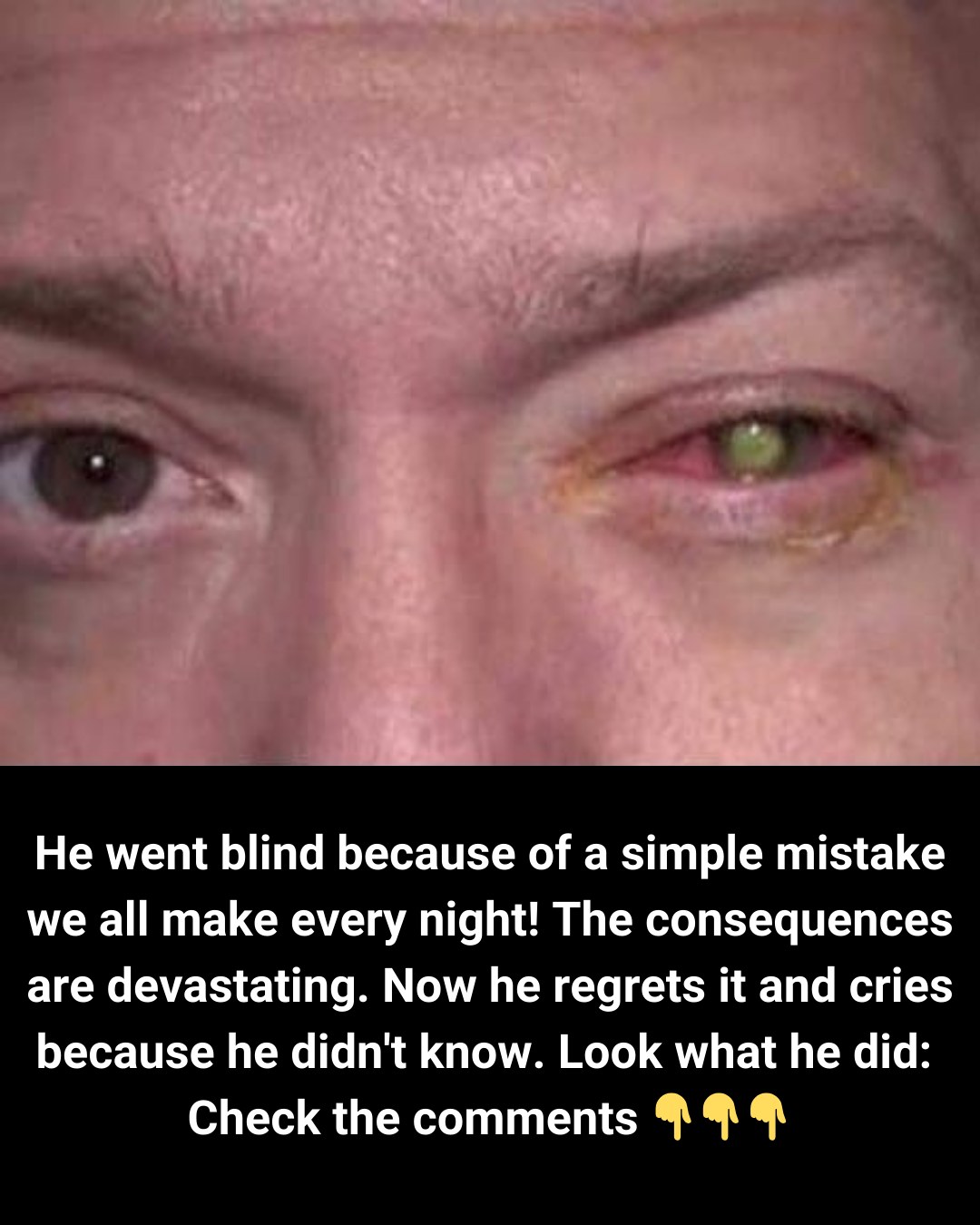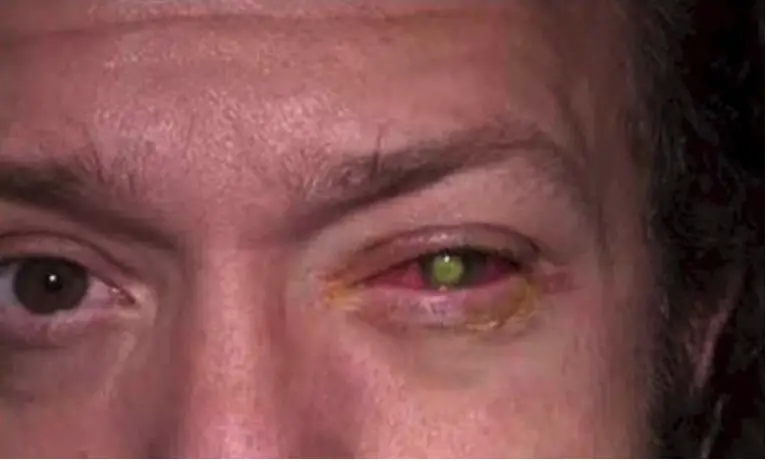
39-year-old named Groeschen got up one morning just to see his eye got irritated during the night.
The condition of his eye became worse and worse in the days that followed and he was forced to seek medical help.
Your cornea becomes somewhat eroded as a result of the illness,” doctors told him.
“The scar tissue that forms as a result of the infection will make it difficult for you to see as the infection clears up.”
Unfortunately, the only way for him to regain his sight was a cornea transplant, a surgery with a recovery time of approximately one year.

Being the owner of a design-based restorations company left Groechen unable to keep up with the work.
According to Groeschen, the packaging for the contacts that he slept in indicates that it is safe to wear them while sleeping. But this is definitely not the best advice people need to follow.
The American Academy of Ophthalmology issued a war:ning in 2013 that stated “overnight wear, regardless of contact lens type, increases the incidence of corneal infection.”

Dr. William Faulkner, who treated Groeschen, said for the media, “Security is the major concern for the eyes, and if contacts are worn overnight, it is something that I would not advocate. The daily-wear disposable contact lenses are by far the safest option for anyone who wears glasses or contacts.”


